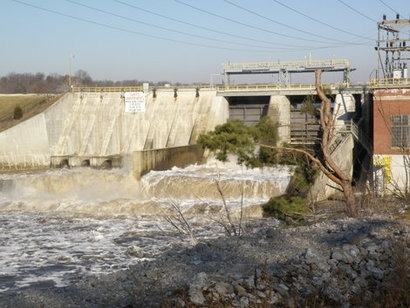
The UK Conservative government has ‘missed the point’ on hydro energy in its recent review of feed-in tariffs, according to Mark Mathieson, Chief Executive Officer of Green Highland Renewables, based in Perth, Scotland, and one of the leading figures in the industry. Mr Mathieson believes that the country’s hydro energy industry will ‘all but disappear’ by the end of the decade as a result.
During 2015, Green Highland Energy employed 20 people directly and worked with more than 250 contractors and subcontractors from over 20 local firms in the construction of over a dozen schemes in the Highlands. A total of 1700 people are employed throughout the industry. According to Mr Mathieson, 80 percent of these jobs will be gone by 2020 as a result of radical cuts (37 percent) to small-scale hydro tariffs announced by the Department of Energy and Climate Change (DECC) in December last year.
“The review of feed in tariffs has been a bitter disappointment to the hydro energy industry” said Mr Mathieson. “We provided very strong, independent data to DECC on the costs and benefits of small-scale hydro much of which was disregarded in the final analysis. Hydro energy has been a part of Britain’s energy mix for more than a century. Major schemes built in the 20th century still provide green power at peak times, and recent years have seen an upsurge in new, small-scale schemes across the Highlands, with more than 100 MW of new capacity online already this decade. The industry still has an active pipeline of consented new projects, but DECC’s plans will put an end to almost all new projects coming forward. I fear Britain’s small-scale hydro industry, and the thousands of jobs that go with it, will all but disappear in the next few years.”
The British Hydropower Association has written to UK Energy and Climate Change Minister Amber Rudd outlining its concern about a review that fundamentally misunderstood the role that hydro plays in the UK energy mix, generating rapid, on-demand energy in the evening and in winter when it is needed most.
Mr Mathieson added that although solar energy did very well in the review, it does not make any contributin to the winter peak – cold evenings in mid-winter – when margins are very tight. National Grid has to buy in short-term power during these ‘capacity crunches’, including high cost diesel generation. Additional ‘last resort’ gas power is also being bought at prices as high as £2500 per megawatt hour (MWh) – nearly 50 times the usual cost. These costs are borne by consumers. DECC also fails to note that hydro already produces grid parity power, with many of the UK’s historic hydro schemes delivering subsidy-free green energy right through the winter. Another 20 years will see all of the small hydro schemes also becoming subsidy-free, producing decades of cheap green power at a time when the UK will be paying £1 billion per year to the foreign owners of the proposed Hinkley C nuclear power plant.
Hydro energy has been part of the UK energy mix for more than a century and is the most popular form of energy in the country. It supports thousands of local jobs in remote areas and has an almost wholly UK supply chain.
The BHA has therefore asked Amber Rudd to think again and requested a further meeting to explore the available options.
For additional information:

